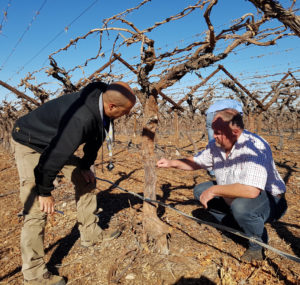For most companies, the traditional model of doing business is simple: Make a great product, ship it out, and forget about it. However, for a company like BioBee, whose solutions are equal parts knowledge, expertise, and innovative solutions, the product can’t simply be forgotten about once it leaves the doors.
BioBee has taken great pains to ensure that they have a physical presence in every country where they market their integrated pest management solutions. By establishing a large number of subsidiaries in their market countries, BioBee both ensures that their products are implemented by knowledgeable experts, but that they learn to navigate the unique challenges that each new landscape presents. And now, for the first time, BioBee has brought the whole family home to Israel.
This last November BioBee hosted the first annual International Subsidiary Conference, providing a unique forum where BioBee employees from across the world could share all their challenges, helpful tips, and unique solutions. The conference also gave many of the employees a chance to see where their fascinating integrated pest management products were conceived, as well as seeing Israel itself for the first time.
The conference gathered representatives and distributors from across the world, including countries like Chile, Columbia, India and Russia. Each individual country presents a unique challenge for BioBee, emphasizing the importance of having a local presence, with local expertise. The subsidiaries help overcome challenges unique to their locality, such as identifying the oddities in the terrain, or specific threats to crops.
The logistics of bringing predatory insects and complicated Integrated Pest Management tools into foreign countries is no small task. In order to minimize the hassles, BioBee takes the initiative to export some of their production capabilities overseas. The company went so far as to ship Bumblebee Queens over to Chile to start a new Bombus colony, where they help pollinate record-breaking crops of blueberries and greenhouse tomatoes. In Colombia, BioBee established a facility to cultivate it’s flagship predatory mite, the Phytoseiulus persimilis.
But most importantly, the BioBee presence on the ground helps ensure that the intricate and complex integrated pest management systems are implemented perfectly. The BioBee representatives create an important connection in their countries, harnessing the local knowledge while teaching their revolutionary methods, creating a new batch of experts on the ground. This kind of flexibility has allowed BioBee to provide each market with the best products and services possible by researching and developing through in the field implementation.
Over the last five years, big steps have been taken to plant the seeds for the new system of subsidiary companies. As these daughter companies begin to lay down roots, this huge undertaking has started to yield fruit, allowing BioBee to take the leap from an Israeli company to an international one. The first annual subsidiary conference has become a powerful symbol of the integral part local knowledge and flexibility have played in BioBee’s massive success.

